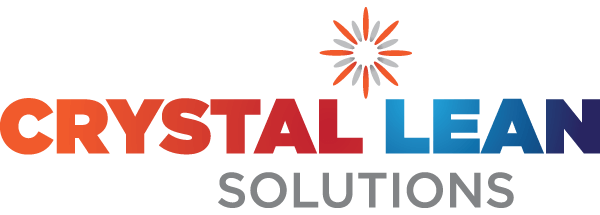Case Study: Medical Equipment Manufacturer
Recently, we partnered with a medical device manufacturer to support them through a period of significant growth in demand for one of their key products. However, this projected growth was constrained by the capacity of their existing manufacturing process, which, even when operating at full capacity, was unable to meet the immediate market demand.
Crystal Lean Solutions (CLS) were brought on board to support the team by using the Lean tools and processes, to optimise the production process and to create additional capacity output to an almost 20% increase per week. As experienced Lean consultants of Enterprise Ireland LeanPlus programme, we were selected by the client to support them on their lean journey.
The Senior Leadership team acted as Project Sponsors and the members of management team and staff acted as Project Leaders. There were multiple projects in the production areas.
Their workforce quadrupled within a nine-month period, which brought its own logistical as well as training challenges with new starts coming on board most weeks.
All Supervisors were new to the role and had limited experience of Lean processes. Hands on active Lean learning and development of Visual KPI’s empowered the Supervisors to take more responsibility /accountability of their team’s metrics and performance management.
Our Approach:
CLS initially started with a mapping of the process and understanding the flow of product throughout the process with the support of spaghetti charts. Following a review of the flow and data that was available, 4 projects were prioritised with sponsors and project leaders assigned to the projects, with CLS Lean Consultant mentoring the teams using A3 problem solving approach. Key focus areas included:
- One Source of Truth Project – The scope of this project was to identify key KPI’s for the primary value stream selected and develop a single digitised data collection source for these KPI’s. This included working with the teams to set up Tier 1 daily huddles to review performance data and continuous improvement opportunities.
- Set Up Reduction – To improve productivity, this project targeted the bottleneck process and reducing the time to change between batches. Maintenance and operator involvement was critical to the success of this project.
- Scrap Reduction Project – To improve productivity, the top 3 scrap items were prioritised and systematically reduced using both the A3 process. Videoing the process yielded improved understanding of the process and supported maintenance and supervisors understand the real root cause of problems identified.
- Overall Equipment Effectiveness (OEE) Improvement: As part of the collection of data, the data analysed highlighted key reasons for downtime. The top three were targeted for improvement to significantly reduce contributors to downtime to improve productivity.
To ensure that projects were progressing, the projects were reviewed weekly with the sponsors and any decisions were made quickly and any roadblocks were discussed and addressed.
List the main training/coaching activities we carried out included:
- Development of Data Collection Systems for key Production parameters (Outputs, downtime, scrap etc.).
- Gemba Process.
- Process Mapping.
- Direct Process Observations.
- Analysing Data to understand current state – data-based decision making.
- A3 Problem Solving.
- Process Optimisation & New lean Process flow Layouts.
- Standard Works
- Development of KPIs & Visual Boards (SMART Factory).
- Weekly Project Review Process Development & Templates.
- Mentoring on Project Review meetings.
The activities carried out by the Project Champion:
- A3 Problem Solving.
- Analysing Data to understand current state – data-based decision making.
- Development of KPIs & Visual Boards.
- Process Observations.
- Process Mapping.
- Presentation of progress reports at weekly project review process meetings.
As a result of our work with the client, the following impacts were made:
- Production outputs increased +29%
- Machine downtime stoppages reduced from approx. 40% to 20%
- Increased Supervisor accountability and ownership of the production processes and Metrics.
- Deployment of Visual metrics (Smart Factory) for production has created real-time visibility to the Production teams on whether they are ‘Winning or Losing’ in relation to the team’s production targets.
- Development of ‘One Source of Truth’ KPIs metrics for use across the business.
- More Structured approach to Project’s implementation and Monitoring.
- Increased awareness of Lean Tools and processes.
For more information or support with your Lean process deployment, Contact us HERE
